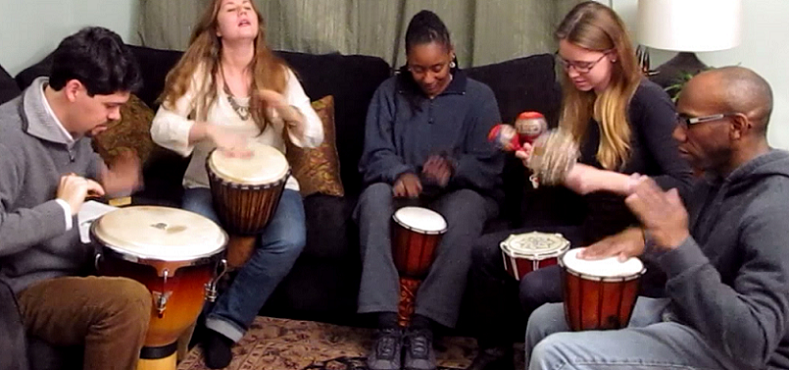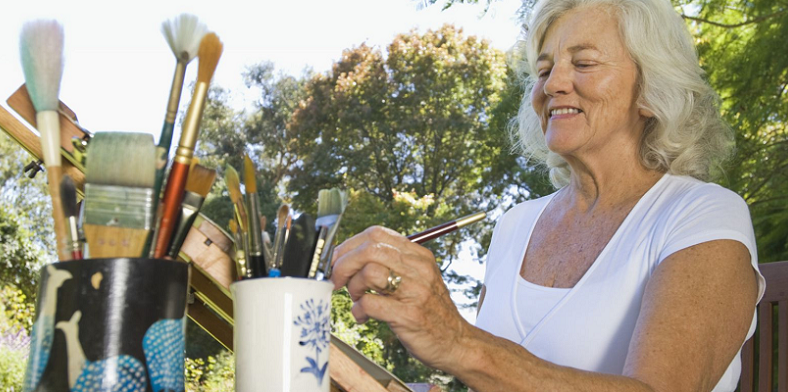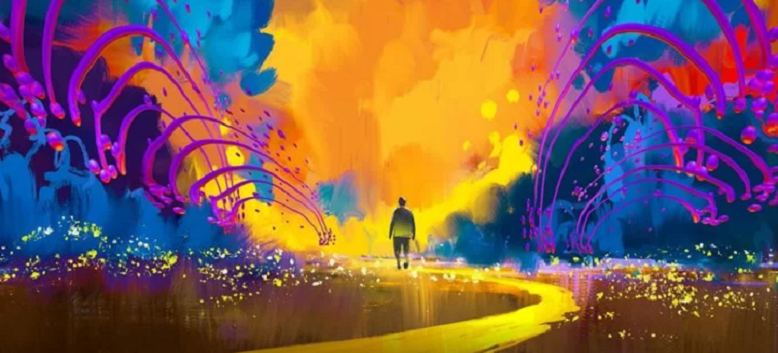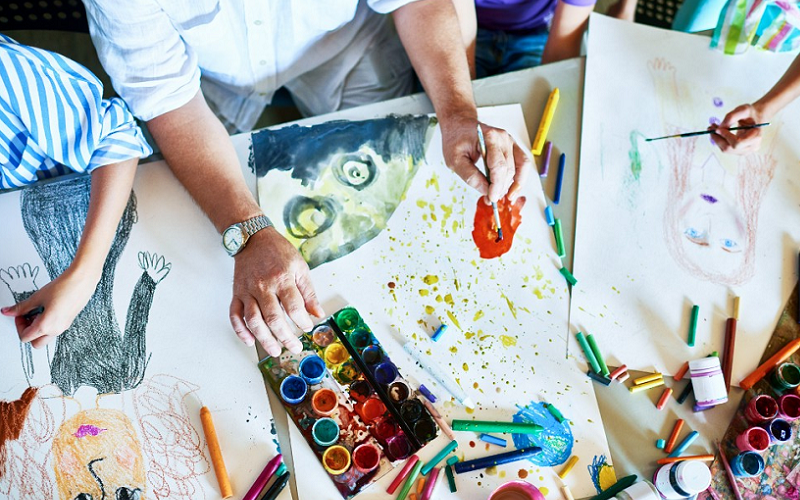In recent years, expressive arts therapy has gained popularity as a powerful tool for improving mental health and wellbeing. Through various forms of creative expression, including visual art, music, dance, and drama, individuals can explore their emotions, reduce stress, and gain a greater sense of self-awareness. Here we explore the benefits of expressive arts therapy and how it can be used to improve mental health.
What Is Expressive Arts Therapy?
Expressive Arts Therapy is a form of psychotherapy that utilizes different forms of creative expression to help individuals improve their mental health and wellbeing. This therapy is a holistic approach that combines the use of different art forms such as visual art, music, dance, drama, creative writing, and other forms of artistic expression to help clients explore their emotions, experiences, and inner selves.
The goal of expressive arts therapy is to provide individuals with a safe and supportive environment in which they can explore their emotions, reduce stress, and gain a greater sense of self-awareness. By encouraging clients to engage in the creative process, expressive arts therapists help them to better understand their feelings, thoughts, and behaviors.
One of the key aspects of expressive arts therapy is that it is a non-verbal form of therapy, which can be particularly helpful for individuals who have difficulty expressing their thoughts and feelings through words alone.
For example, individuals who have experienced trauma or are struggling with anxiety may find it difficult to express their feelings through verbal communication. However, through the use of different art forms, they can explore and express their emotions in a way that feels safe and empowering.
Expressive arts therapy is based on the belief that the creative process itself can be therapeutic. Through the act of creating, individuals can experience a sense of catharsis, release emotional tension, and gain insight into their own experiences.
By exploring different art forms, individuals can develop new coping skills, enhance self-esteem, and improve their communication abilities.
There are many different forms of expressive arts therapy. For example, art therapy may involve painting, drawing, or collage-making, while music therapy may involve singing, playing an instrument, or composing music. Dance therapy may involve movement exercises or improvisation, while drama therapy may involve role-playing or storytelling.

How Expressive Arts Therapy Can Improve Your Mental Health
Expressive Arts Therapy has been shown to have many benefits for mental health, including improved emotional regulation, increased self-awareness, and reduced symptoms of depression, anxiety, and trauma. Here are some ways in which Expressive Arts Therapy can improve your mental health:
Stress Relief and Relaxation
Creating art can help to reduce stress and anxiety by providing a meditative and relaxing outlet. Engaging in creative expression can also help individuals to focus on the present moment and to let go of worries about the past or future.
Self-discovery and Increased Self-awareness
Through the creative process, individuals can explore their emotions, thoughts, and beliefs. By exploring their inner world in a non-threatening way, individuals can gain insight into themselves and develop a greater sense of self-awareness.
Increased Self-esteem and Confidence
Creating something that is meaningful and personal can give individuals a sense of accomplishment and pride. This can lead to increased self-esteem and confidence, which can have a positive impact on overall mental health.
Improved Communication Skills
Engaging in creative expression can help individuals to develop new ways of communicating and expressing themselves. For example, individuals who struggle with verbal communication may find that they are better able to express themselves through visual art or music.
Healing and Trauma Processing
Expressive Arts Therapy can be particularly helpful for individuals who have experienced trauma. Through the creative process, individuals can explore and express their emotions in a safe and non-threatening way. This can help to reduce the symptoms of trauma and promote healing.
Enhancing Relationships
Expressive Arts Therapy can also be helpful for improving interpersonal relationships. Through collaborative projects, individuals can develop trust, empathy, and communication skills. This can lead to stronger relationships with family members, friends, and colleagues.

Who Can Benefit From Expressive Arts Therapy?
Expressive Arts Therapy is a versatile form of therapy that can be used to benefit a wide range of individuals regardless of their age, gender, or cultural background. It is a form of therapy that involves different types of creative expression, including visual arts, music, dance, drama, and writing to help individuals explore their emotions, thoughts, and beliefs in a safe and non-judgmental environment.
One group of individuals that can benefit from this therapy are those who are struggling with mental health challenges such as anxiety, depression, bipolar disorder, or PTSD. These individuals can use creative expression as a tool to explore and express their emotions in a healthy and non-threatening way. Through this process, they can gain a deeper understanding of their emotions, which can lead to better emotional regulation and overall improvement in their mental health.
Another group of individuals that can benefit from Expressive Arts Therapy are children and adolescents. Children and adolescents often have difficulty expressing themselves verbally, and may find it easier to express themselves through creative activities. Engaging in creative expression can help them to develop communication skills, regulate their emotions, and express themselves in a healthy and productive way.
Elderly individuals can also benefit from Expressive Arts Therapy. Many elderly individuals experience isolation, loneliness, or cognitive decline, and this can take a toll on their mental health. Engaging in creative expression can help to improve mood, increase socialization, and promote cognitive functioning.
Individuals with developmental disabilities such as autism or Down syndrome can also benefit from Expressive Arts Therapy. Through creative expression, these individuals can improve communication skills, develop socialization skills, and increase self-esteem.
Expressive Arts Therapy can be helpful for individuals who have experienced trauma such as survivors of abuse, violence, or natural disasters. Through the creative process, individuals can explore and express their emotions in a safe and non-threatening way, which can promote healing and reduce symptoms of PTSD.

How to Find an Expressive Arts Therapist
If you’re interested in exploring Expressive Arts Therapy, the first step is to find a qualified therapist who is trained in this form of therapy. Here are some tips on how to find an Expressive Arts Therapist:
- Look for Accredited Programs: Look for therapists who have completed accredited training programs in Expressive Arts Therapy. This ensures that they have received the necessary training and education to provide this type of therapy.
- Check Credentials: Check the therapist’s credentials and ensure that they are licensed or certified to practice Expressive Arts Therapy. You can check their credentials by looking them up on the websites of their professional organizations or licensing boards.
- Referrals: Ask your doctor, mental health provider, or friends and family if they can recommend an Expressive Arts Therapist. Personal referrals can be a helpful way to find a therapist who is experienced and skilled in this form of therapy.
- Online Resources: Many professional organizations, such as the International Expressive Arts Therapy Association, provide online directories of qualified therapists. You can search for therapists in your area who specialize in Expressive Arts Therapy through these directories.
- Interview Potential Therapists: Once you have identified potential therapists, schedule an initial consultation or interview to get to know them better. Ask about their training and experience in Expressive Arts Therapy and their approach to treatment.
- Insurance Coverage: Check with your insurance provider to see if they cover Expressive Arts Therapy. If not, consider asking the therapist if they offer a sliding scale or other payment options.
- Online Options: With the rise of telehealth, there are now many online options available for Expressive Arts Therapy. Consider searching for online therapists who offer this form of therapy if you prefer the convenience and accessibility of virtual sessions.

